International relations were becoming tiresome. The world had become divided into two spheres: Hindu and Buddhist. Siding with the Hindu Saladin and Suryavarman only made sense, given their proximity, but the Buddhist bloc was nothing to scoff at. Asoka needed two things: The war machinery to protect himself against "diplomacy through other means" from the increasingly belligerent Justinian and his allies, and a way to harvest India's abundant natural resources to mollify an increasingly disgruntled populace.
Genghis Khan, Lord of War, was eager to provide the former:
In exchange for modernizing the nomads' primitive barter economy, and teaching them the finer points of art, Khan agreed to outline the construction of Bridges and Catapults, as well as the signature Mongol "Battle-Trance." Asoka had little interest in such bloodthirst, but, when applied to religion, it could form the basis of the monastic life. As the stoic warrior-city of Persepolis and the miners of Tehran churned out Catapults and foot soldiers to protect the borders, the civilian cities away from the front lines built Monasteries to preserve and advance knowledge.
With Construction in hand, the next step was to visit the mysterious Khmer, whose jungle homeland was second only to India in terms of abundance:
The deal was hardly fair, but Suryavarman was a friend, and he had little else to offer. Indian wise men learned the secrets of the Plantation, as well as some bizarre planetary lore that proved that India's place on the globe was much smaller than anyone had thought. The Great Khan, upon learning of the deal made with the Khmer, asked for Calendar as a friendly gesture. Asoka was a generous man, and, though it pained him to give away what little he had as the rest of the world conspired against him, he complied with the request.
Virgil, the wayward Scientist who dedicated his life to art, was sent to Vishakhapatnam to bring enlightenment to the people and lay the groundwork for the city's future Legendary status:
As he spread Culture, he also earned a good deal of Gold which bolstered India's tenuous cash reserves.
Relations with the Chinese continued to deteriorate:
Asoka once again regretted throwing in with Qin Shi Huang. He had been deceived those years ago, but it was likely too late to repair relations with the Koreans, who were now seen to be a virtuous people.
Asoka, though, was eager to at least begin building bridges:
One of India's most eloquent speakers travelled to Wang Kon's far-off Palace, apologizing profusely and promising years of future peace. Seeing that no blood had been shed between Indian and Korean, Wang Kon relented, even offering a small gift of gold to prove his goodwill. Advisor Rorschach grumbled about the move being "soft" and "weak," but his mental stability had long been questioned in the Imperial court.
Furious at seeing the Hindu bloc united in friendship, and doubtless eying the riches of the Indian empire, Justinian made his move in 370 A.D.:
He brought the usually peacable Mansa Musa and, half a century later, the zealot Isabella. Of course, these lackeys were just that. Only Justinian presented any sort of credible military threat. Mansa Musa sent a Scout who was killed outside Karachi, and Isabella skirted a Spearman around the borders. Before he could be chased, he disappeared from the scene.
In 415, as Persian Spearmen duelled with Byzantine Horse Archers outside Persepolis, Lord Asoka was presented with a tough moral decision:
The Empire was established. Cities were large, and growing larger. The death toll might be catastrophic. And the people, still weak from the battles against the Barbarians and now caught up in the horrors of war, might break from the betrayal of trust. But new influxes of Spices, Dye, and Incense might keep the citizens content, and any discoveries would benefit this and future generations. With a great sigh, Asoka consented to the tests. Though the uproar was tremendous, the anticipated breakthrough was made. Asoka was devastated, but he knew that it was the right thing to do for his people. (Besides, Asoka may be a good guy, but this ain't no RPC!)
Vishakhapatnam, the reborn City of Destiny, showed that it was truly blessed by the gods:
This early on, and in a Legendary city, this was truly a boon.
In 430, Justinian made his move on Persepolis:
The Byzantines sent a highly-trained cadre of Swordsmen, backed up by a state-of-the-art Catapult, defensive Axemen, and even a pair of quick-striking Chariots. Persepolis, though, was well-defended and, before the force was able to lob a single stone against the city, it was wiped out. "Justinian thinks we're locked into a war with him," grumbled advisor Rorschach. "He's locked into a war WITH ME!"
Inspired by their victory, the Persepolis garrison stormed out of the city, heading northeast to the Byzantine warcamp of Trebizond. Jeanne d'Arc, meanwhile, a mere slip of a girl (with a nasty case of hairy lip), headed west from India to settle in the Persepolis Barracks and train any new recruits:
Trebizond fell easily, and was scattered to the four winds.
The army continued northward, to the city of Circassian:
The Catapult stripped away the city's cultural defenses as fresh Axemen streamed northward. The odds were against the Indian heroes, especially once the trio of Axemen were supplemented by a master of the deadly new Longbow.
The gods were with us, though:
The city held little of value but, being a stronghold of Confucianism, it will be most helpful in our quest for culture.
Seeing Justinian's lack of success, Mansa Musa was willing to normalize relations in exchange for a small tribute, which Asoka was happy to provide:
Isabella was too fresh into the conflict to listen to reason, and Justinian, suitably chastened, was willing to call a cease fire in exchange for the return of Circassian or knowledge of Music.
Unfortunately, Buddhism became ascendant in "a far away land":
So here we stand. This unfortunate war can be ended, but I think that access to Confucianism (and a near-monopoly on Music) may be worth its continuation, if only for as long as it'll take to get a Missionary out and the Tech to spread a bit. Then again, Justinian is still the big boy on the block, especially with access to the powers of the Apostolic Palace.
Here's a look at the world as we know it:
Technology:
And the Dilpomacy Screen:
Thoughts?
Here's the save:

 Justinian is very easy to please if you can adopt his religion. Getting Qin and Justinian in the same religion would be great, and would simplify the diplo enormously (but might be quite hard to accomplish).
Justinian is very easy to please if you can adopt his religion. Getting Qin and Justinian in the same religion would be great, and would simplify the diplo enormously (but might be quite hard to accomplish). ( really... Neal, you definitely should take more attention to this stuff
( really... Neal, you definitely should take more attention to this stuff 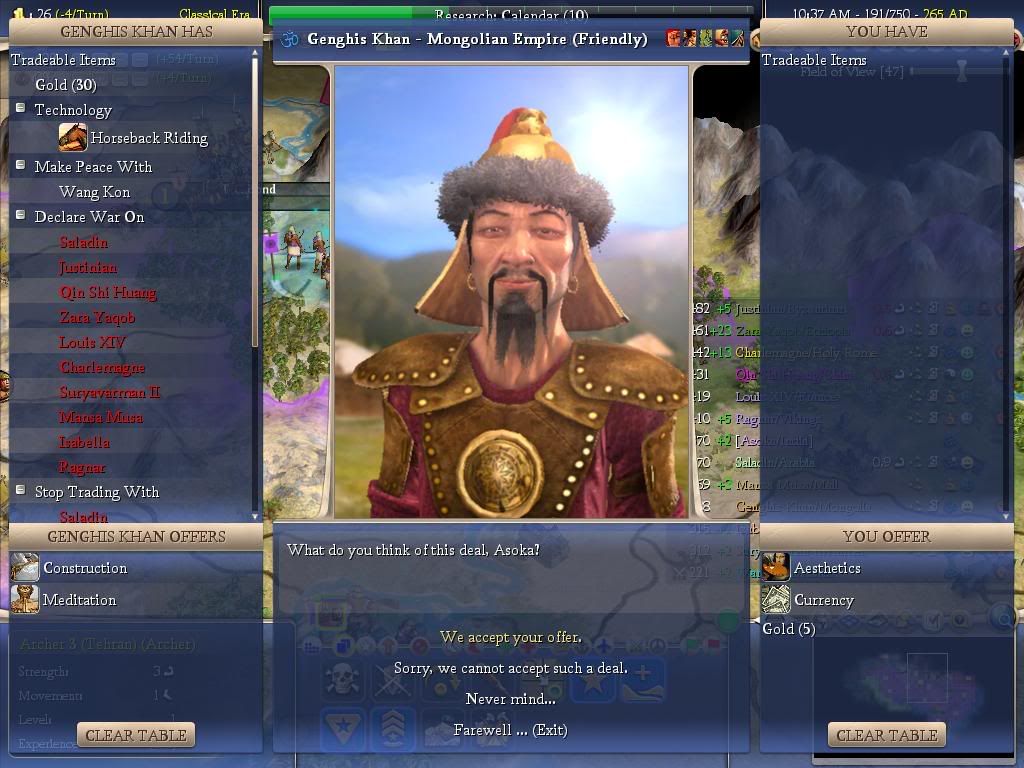
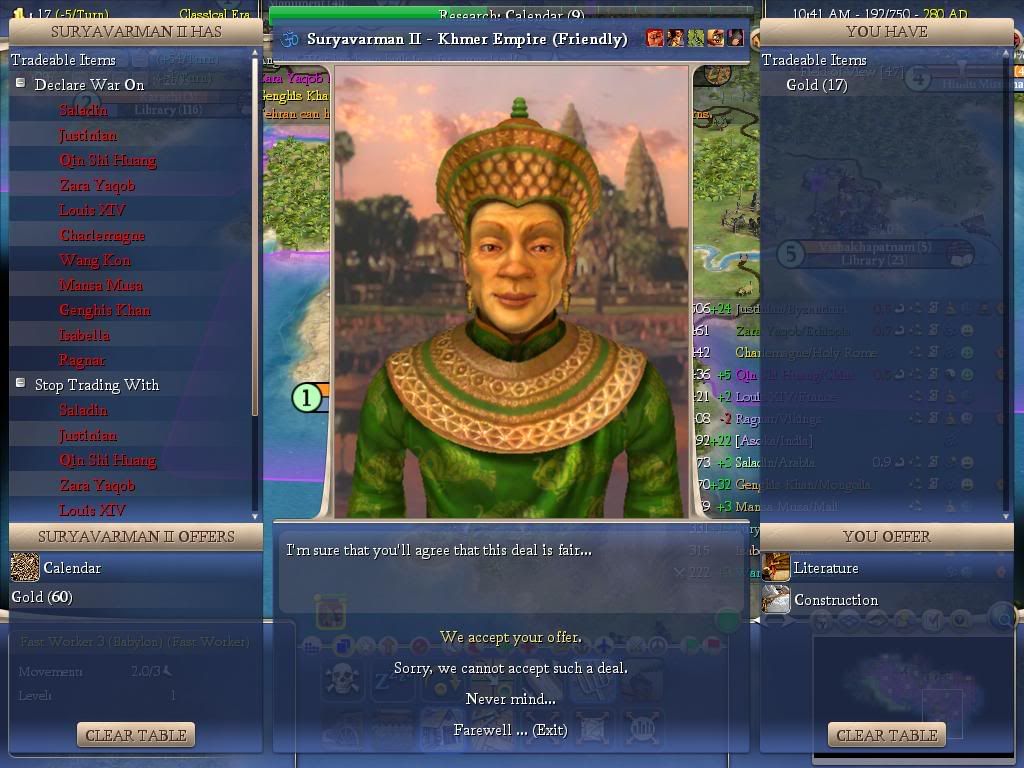
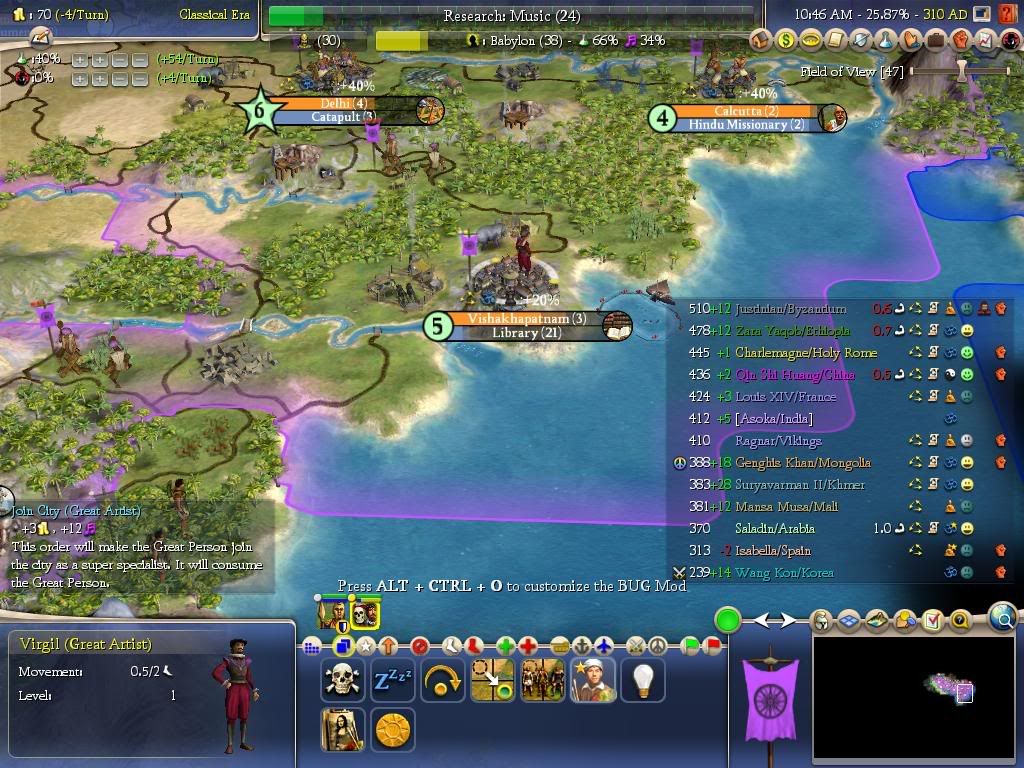
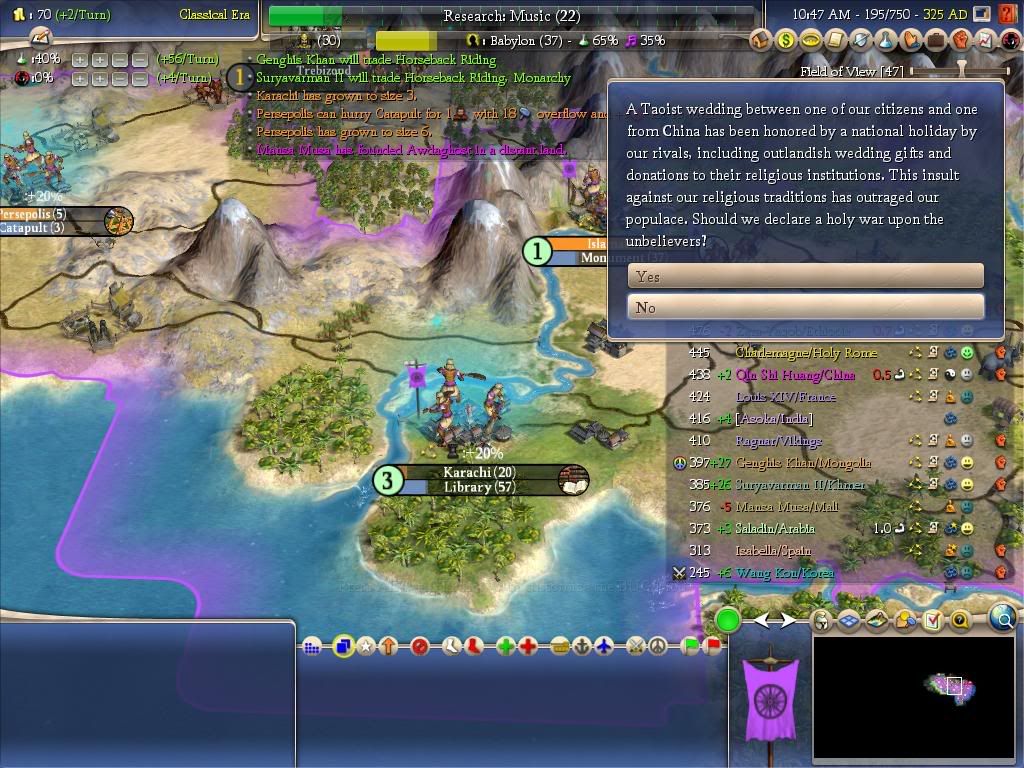
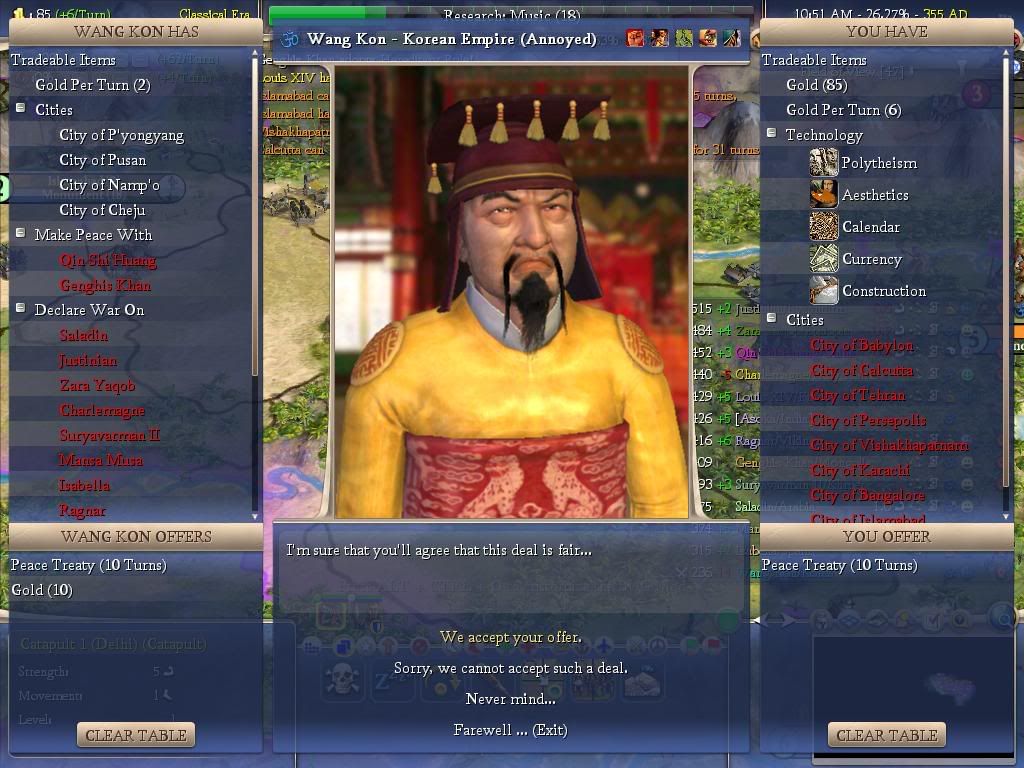
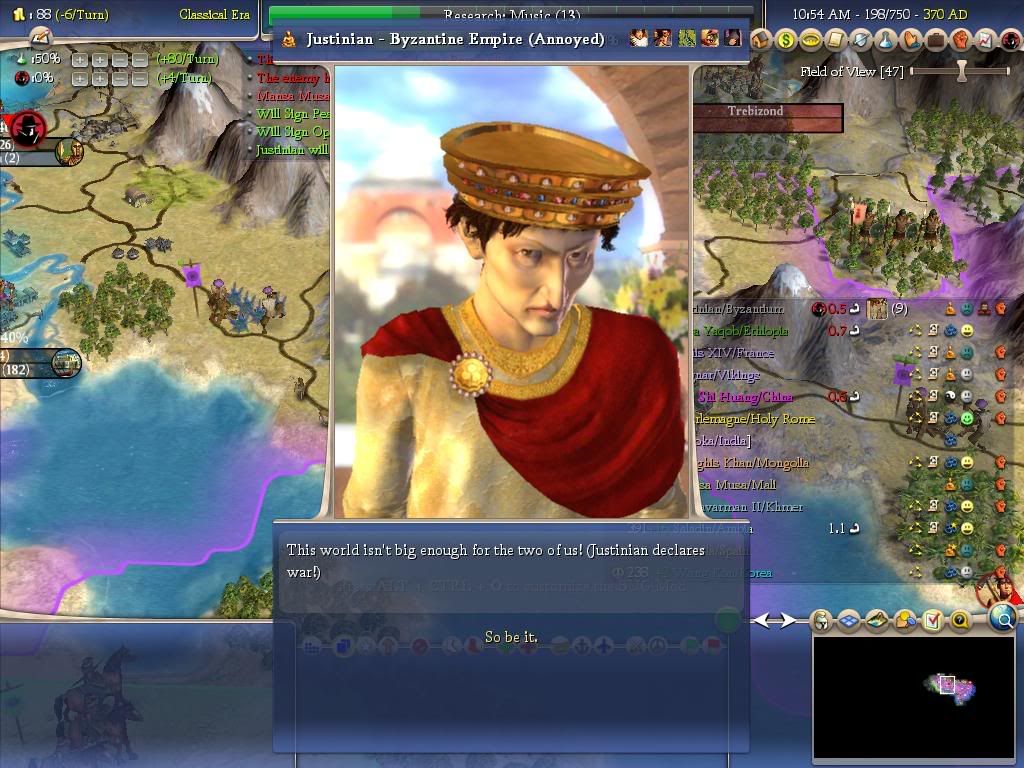
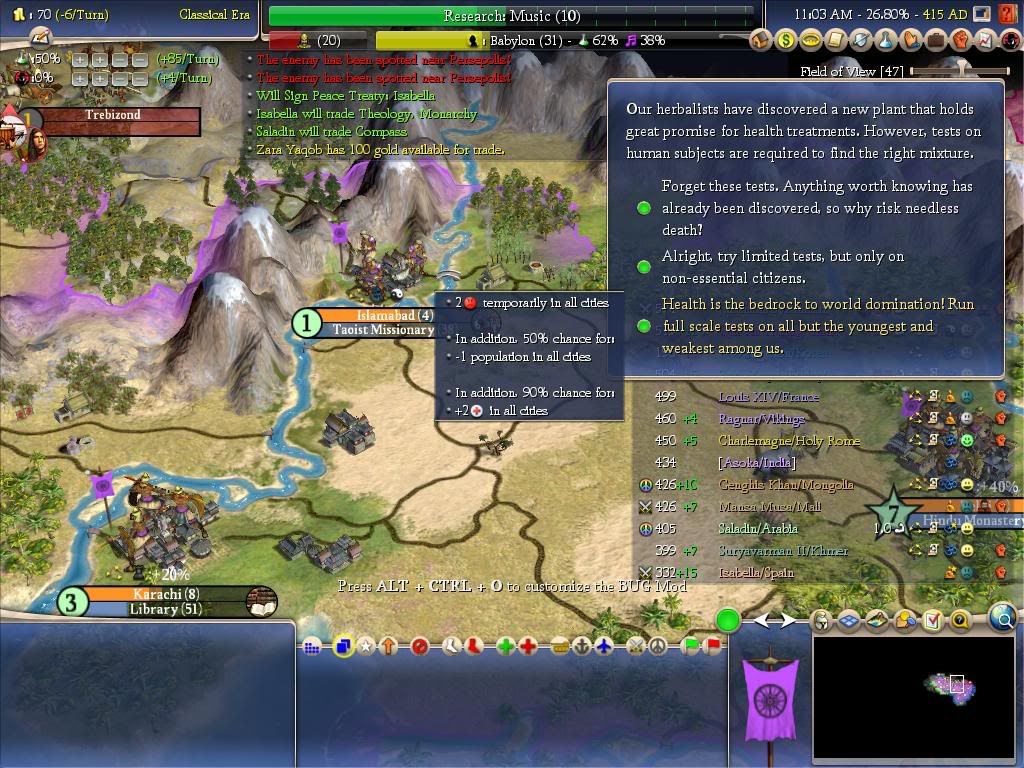
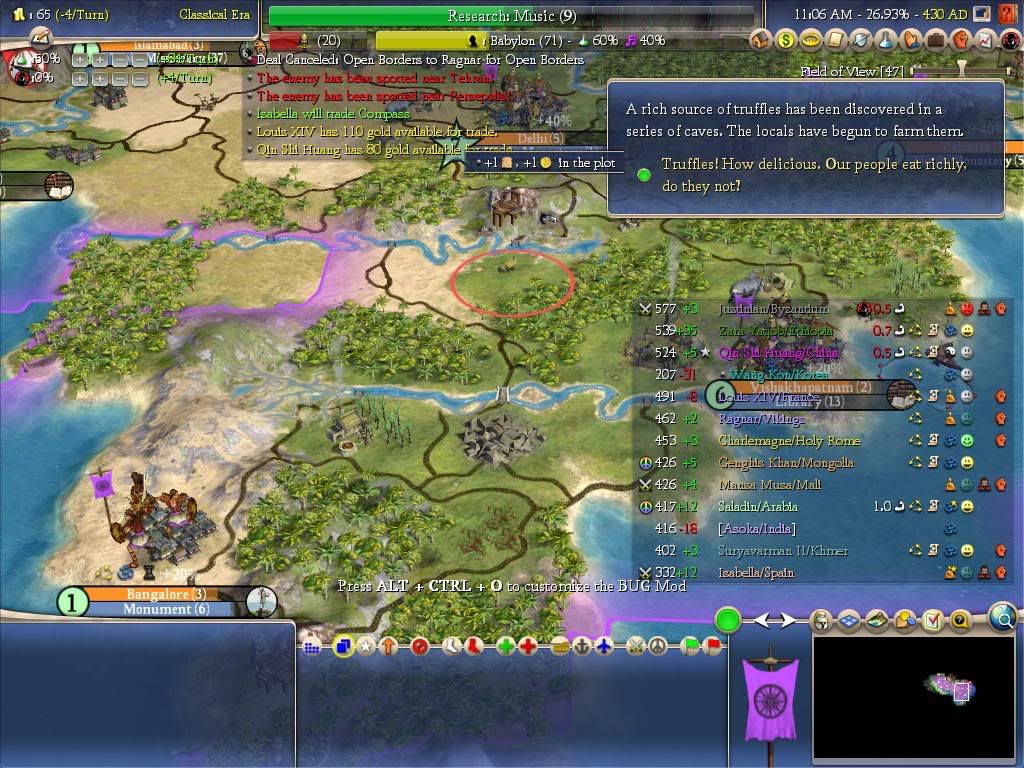
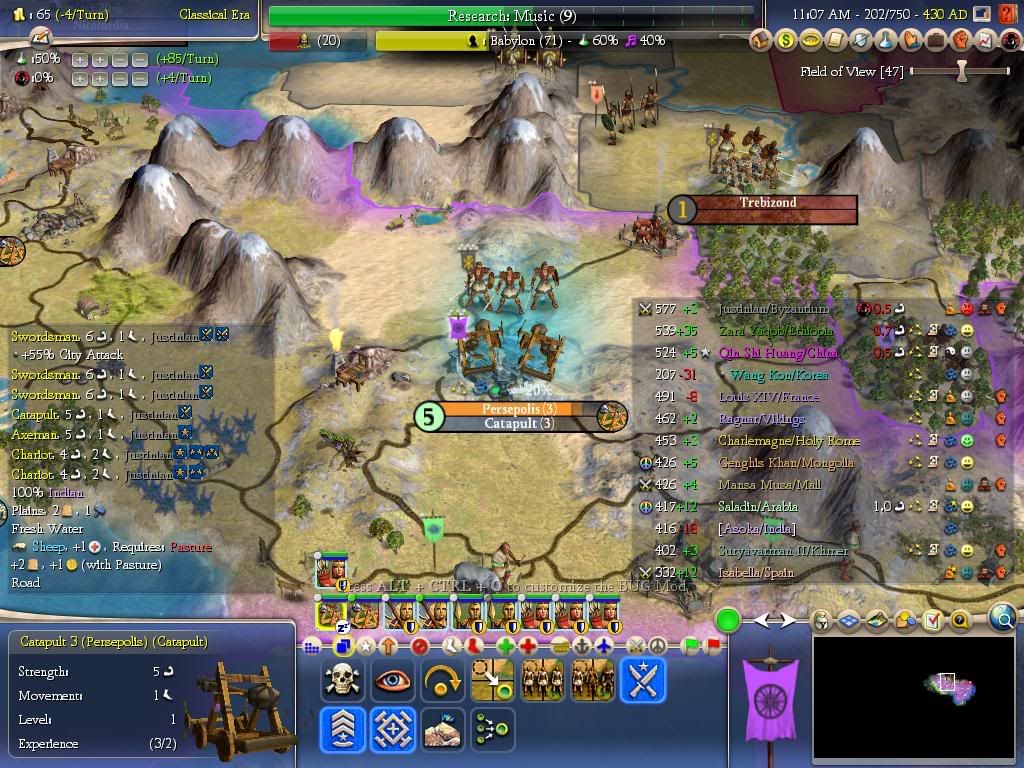
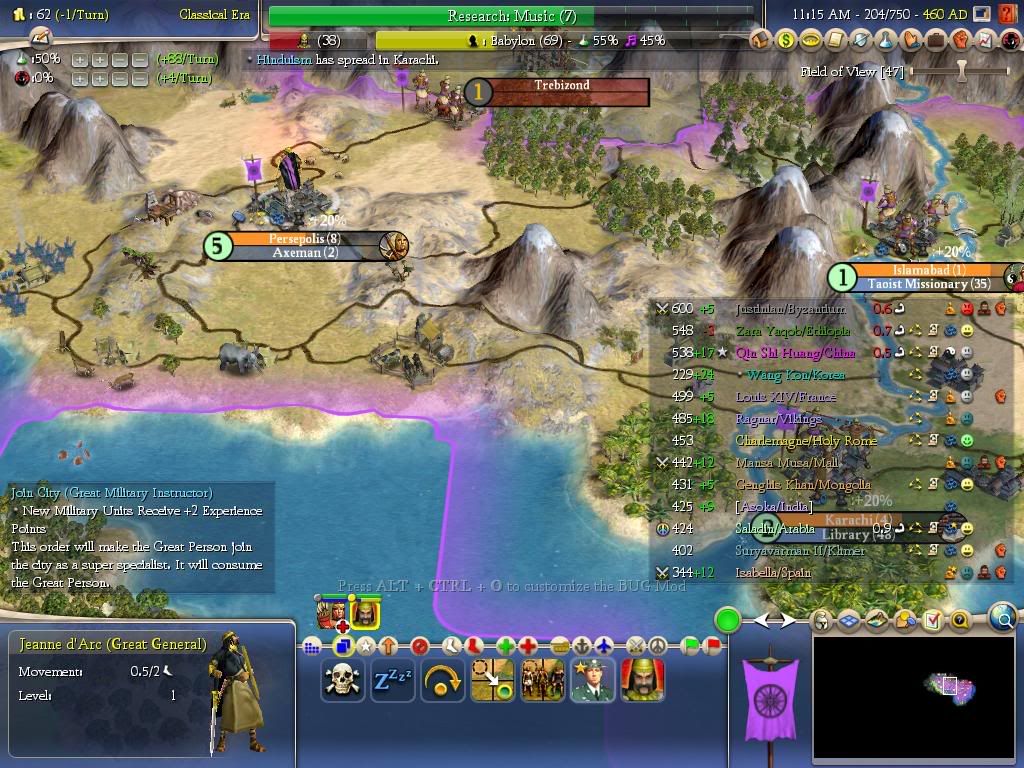
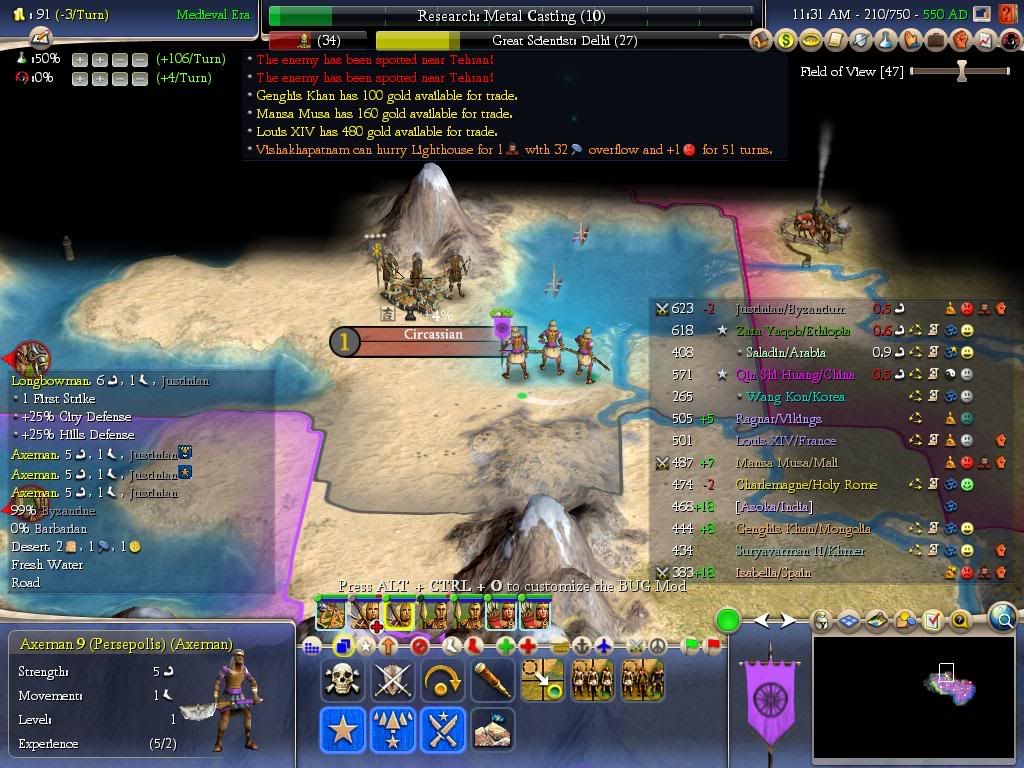
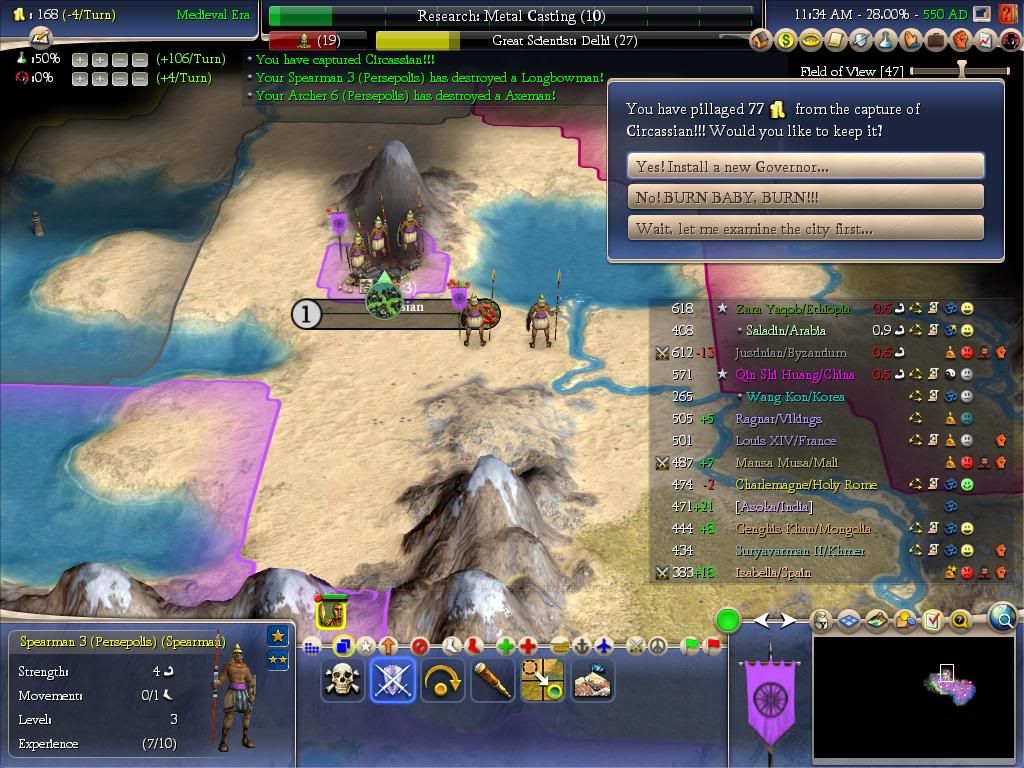
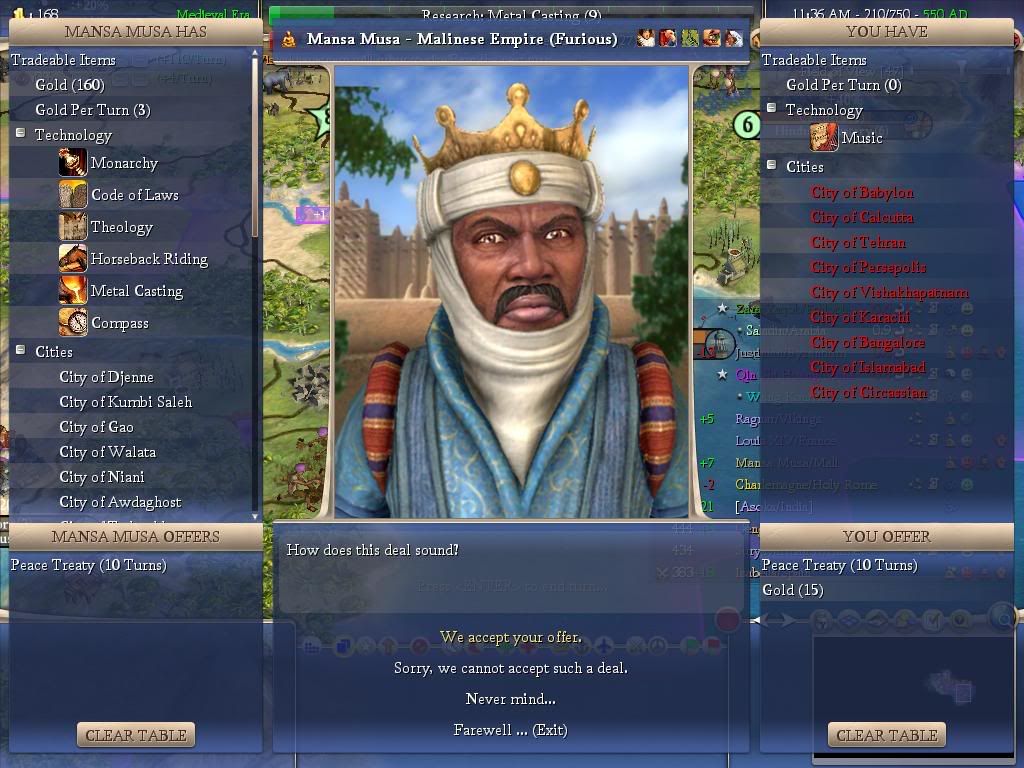
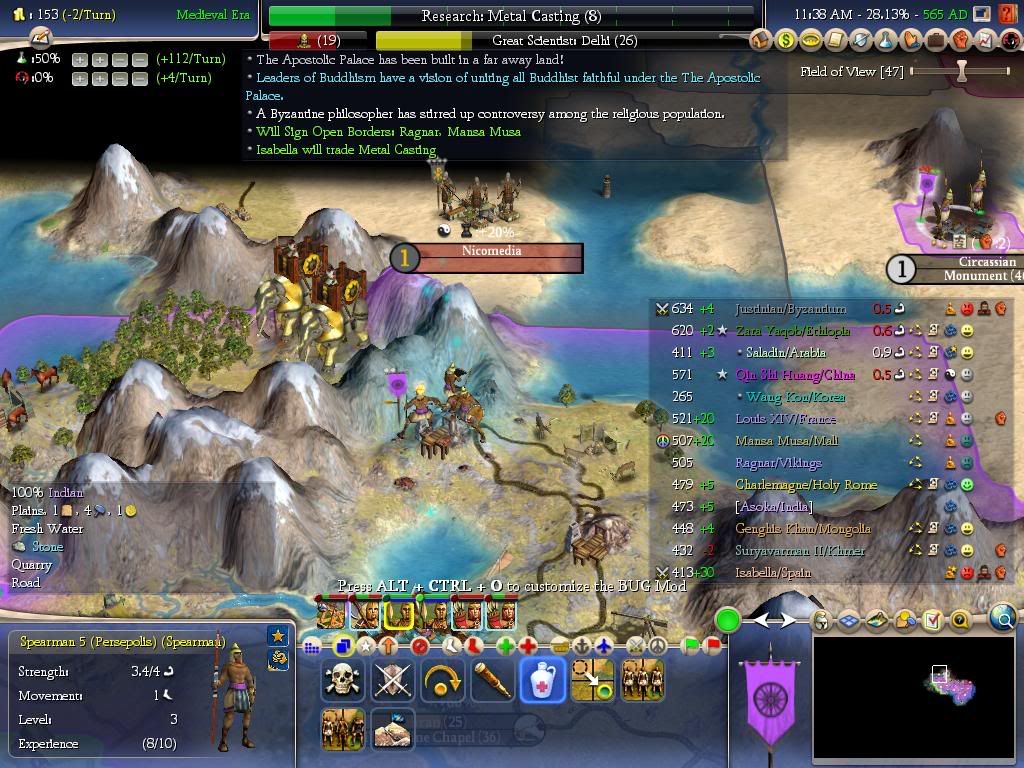
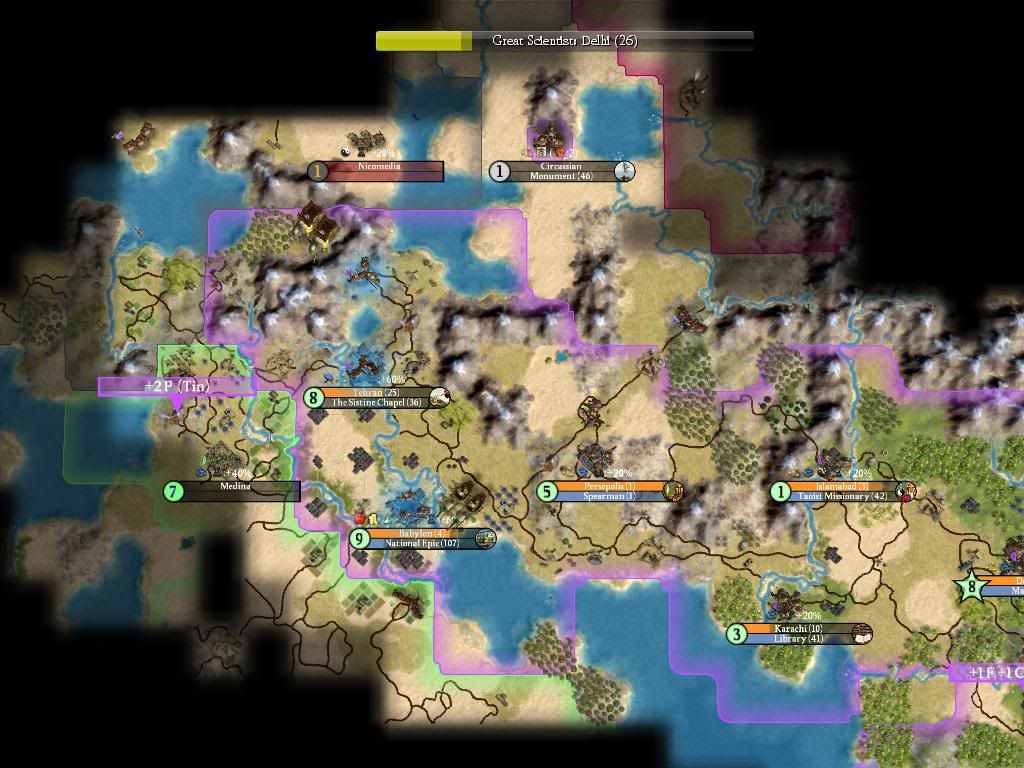
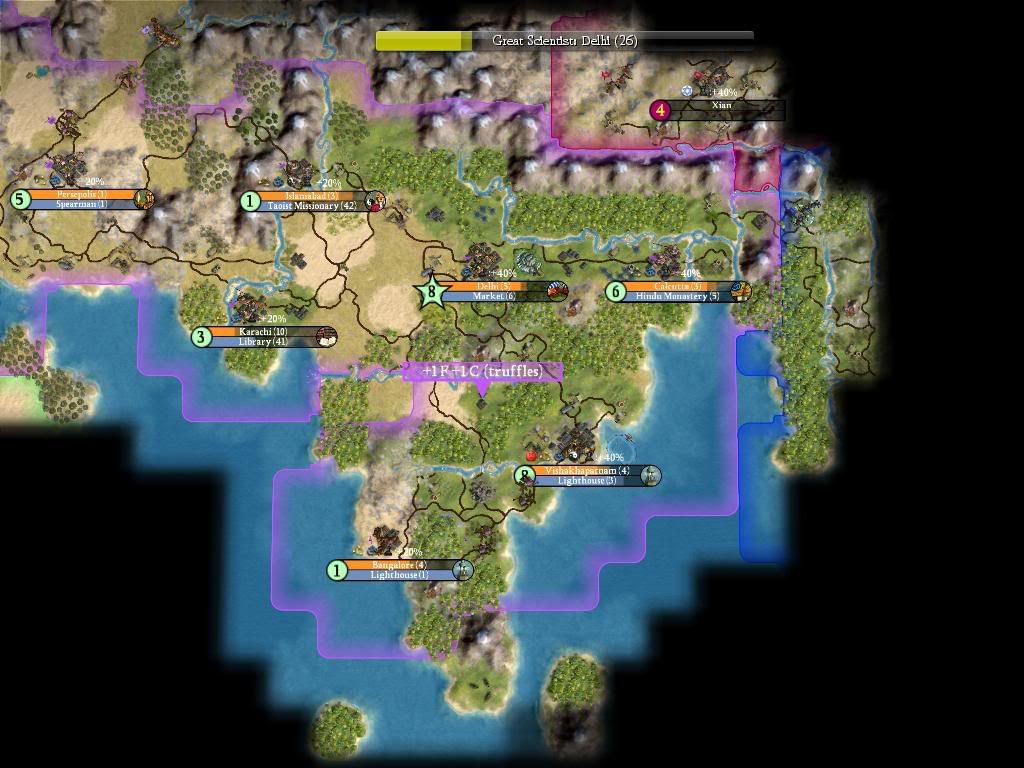
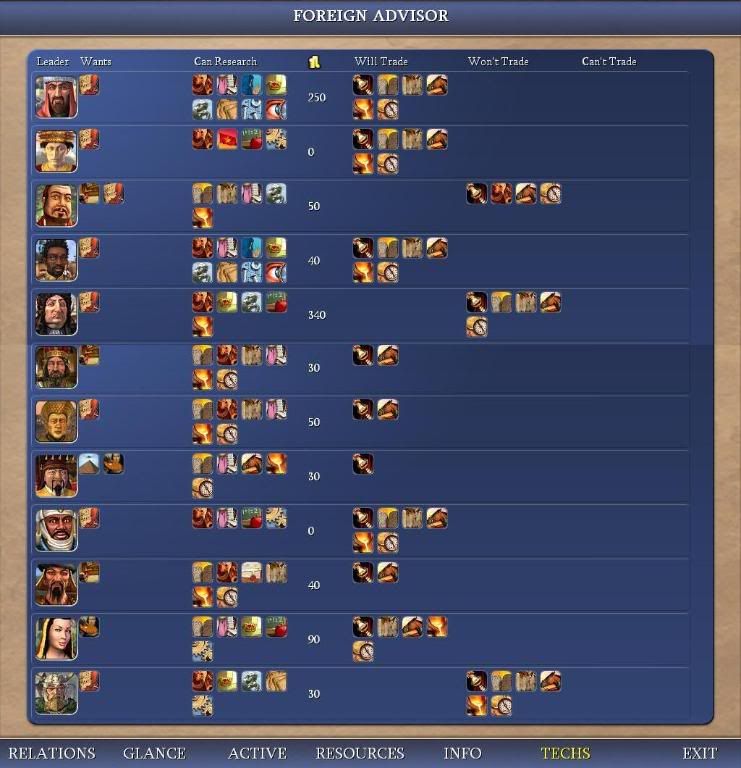
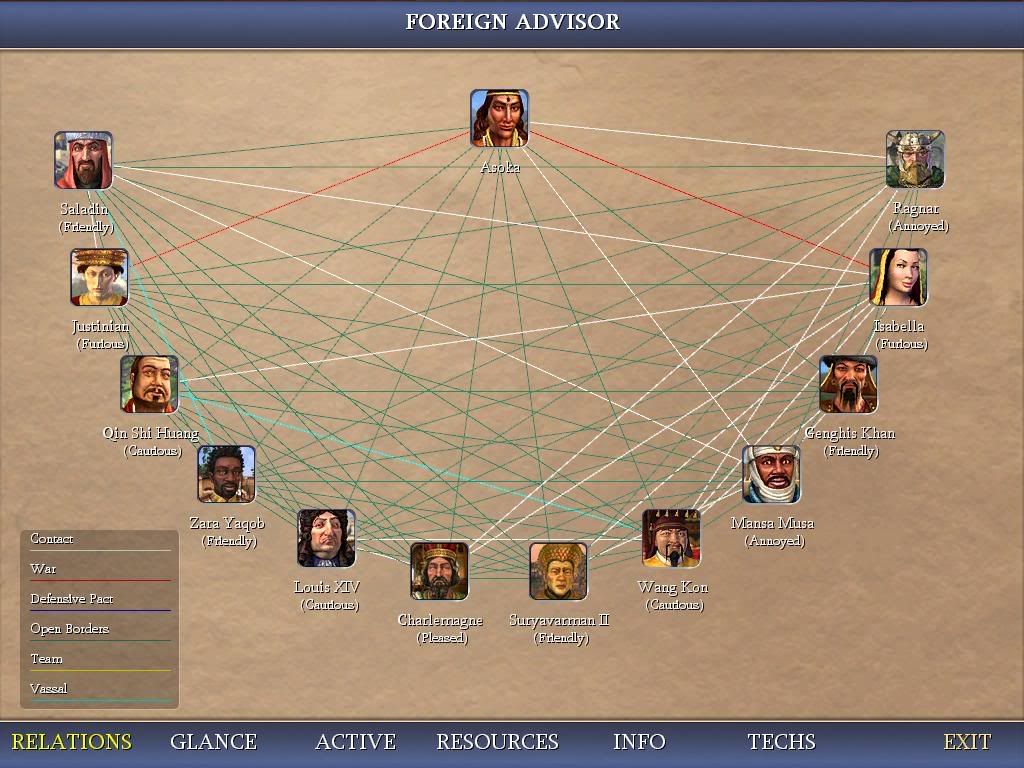
 I can't believe you didn't bribe some of your hindu friends (especially the Mighty Khan!) against Justin.
I can't believe you didn't bribe some of your hindu friends (especially the Mighty Khan!) against Justin. 

